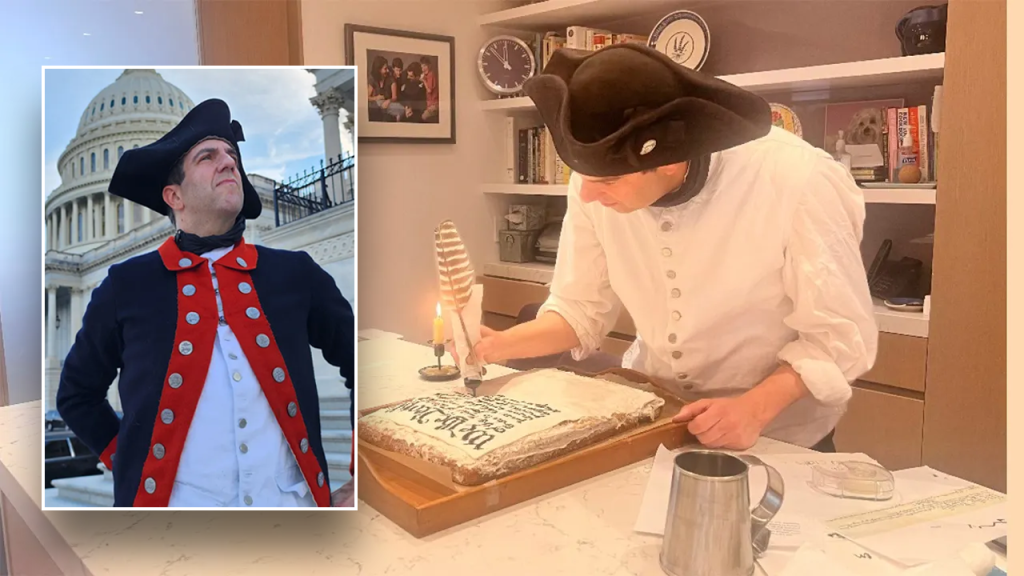The author describes his year-long experiment in living like the Founding Fathers in an effort to gain wisdom from that era. He reflects on how this experience made him grateful for democracy and the rights laid out in the Constitution, such as the First Amendment. He also expresses gratitude for little things like elastic socks, which were not a part of 18th-century attire and required him to wear sock belts every day. The author emphasizes the importance of noticing and appreciating small things in life.
During his experiment, the author immersed himself in 18th-century books on politics and engaged in conversations about the Constitution with friends over tankards of ale. He embraced the fashion of the era by dressing in period-appropriate clothing, including a tricorne hat, buckled shoes, and wool stockings without elastic. The daily ritual of putting on sock belts became a reminder of the small things we often take for granted. The author acknowledges the progress society has made since the Founders’ era despite its flaws and challenges.
The author reflects on the virtues, sacrifices, and fears of tyranny that can be learned from the Founders’ era. While expressing gratitude for societal progress, he acknowledges the negative aspects of the past, such as poor sanitation and medical practices. The inefficiency of long-distance communication in the 18th century, compared to modern methods like email and text messaging, is highlighted as another area of gratitude for progress. The author emphasizes the importance of reason and civil discourse in today’s society, especially in the midst of an election year.
The inefficiency of 18th-century communication is illustrated through examples like the need to physically travel to the post office to collect letters and the uncertainty of receiving correspondence. The author reflects on the exchange of letters between historical figures like Thomas Jefferson and John Adams, noting the depth and complexity of their communication as well as the mundane details of logistics. Despite the challenges and downsides of modern technology, the author expresses gratitude for the convenience and efficiency it provides.
The author emphasizes the importance of gratitude as a daily practice, quoting John Quincy Adams on the soul-filling nature of gratitude. He describes his efforts to fill his soul with gratitude each day as a way to appreciate the progress and positive aspects of society. The book “The Year of Living Constitutionally: One Man’s Humble Quest to Follow the Constitution’s Original Meaning” by A.J. Jacobs is referenced as a source of inspiration for the author’s experiment in living like the Founding Fathers. The author encourages readers to appreciate the small things in life and engage in civil discourse.


